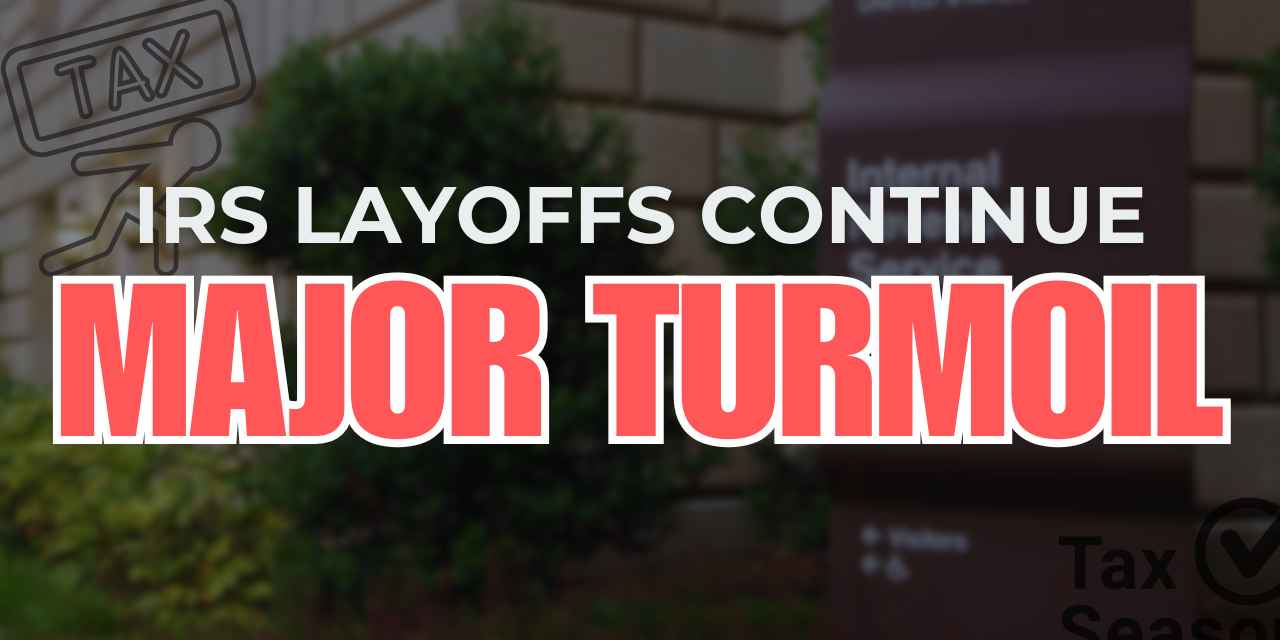
The Internal Revenue Service (IRS) is undergoing one of the most tumultuous transformations in its history. Following a massive wave of layoffs, leadership upheaval, and operational shake-ups, the future of America’s top tax agency is clouded with uncertainty.
Workforce cuts reshape the IRS
Driven by the Trump administration’s Department of Government Efficiency (DOGE), led by Elon Musk, the IRS plans to cut up to 40% of its workforce by the end of 2025. This will shrink the agency from about 102,000 employees to between 60,000 and 70,000.
According to a report from the Treasury Inspector General for Tax Administration (TIGTA):
- As of March 2025, over 11,000 employees had already departed, an 11% workforce reduction.
- The audit division took the hardest hit, losing 31% of its revenue agents.
- The layoffs follow the conclusion of the 2025 tax filing season, raising concerns about the agency’s ability to meet taxpayer needs.
In an internal memo, IRS leadership warned remaining employees to maintain professionalism, integrity, and focus as public scrutiny intensifies.
Leadership instability and political interference
The IRS leadership carousel has further complicated matters. In just a few weeks:
- Multiple acting commissioners have rotated through the role.
- Michael Faulkender has taken over from Gary Shapley, amid heavy influence from DOGE restructuring efforts.
Political interference allegations also loom large. Critics accuse DOGE of disrupting IRS modernization efforts, shuttering the promising Direct File pilot program, and allegedly seeking inappropriate access to sensitive taxpayer data.
Operational breakdown and RTO headaches
The IRS’s mandatory return-to-office (RTO) policy has only exacerbated the chaos. Returning employees report:
- Inadequate office space.
- Outdated IT systems and equipment.
- Declining productivity.
Congress derailed modernization initiatives to upgrade IRS technology by rescinding critical funding. Without these upgrades, the agency risks falling behind in delivering efficient taxpayer services and enforcing tax laws.
Impacts on taxpayers: delays and reduced enforcement
The effects of the IRS’s staffing crisis are beginning to show:
- Refund delays are expected to increase.
- Customer service response times are likely to worsen.
- Audit rates are projected to plummet, reducing oversight of complex tax avoidance.
CBS News recently reported that cuts to audit staff could reduce IRS enforcement efforts by billions of dollars annually, potentially widening the tax gap and encouraging tax evasion.
Additionally, concerns have been raised that the wealthy will benefit most. House Democrats warned that cutting compliance staff weakens the agency’s ability to collect unpaid taxes from “wealthy tax dodgers.”
Data-sharing controversy deepens mistrust
Adding to the challenges, the IRS faces backlash over a data-sharing agreement with the Department of Homeland Security. Critics argue this partnership, which has reportedly enabled immigration enforcement actions using IRS data, undermines taxpayer privacy and damages trust in the agency.
Civil liberties organizations call for investigations and tighter oversight of how federal agencies use taxpayer information.
IRS leadership defends restructuring
Despite the mounting challenges, U.S. Treasury Secretary Scott Bessent defended the cuts at a recent House Appropriations subcommittee hearing. He emphasized that collections remain a priority, though he acknowledged a shift toward relying on smarter IT systems and the AI boom rather than traditional manpower.
“I would expect that collection would continue to be very robust,” Bessent stated.
However, many tax professionals and watchdogs remain skeptical, warning that the IRS’s reduced footprint could have long-term negative effects on compliance, enforcement, and public trust.
Key takeaways
- The IRS is cutting up to 40% of its workforce amid major restructuring.
- Audit staffing has declined 31%, threatening enforcement capabilities.
- Political interference and operational disruptions are shaking taxpayer confidence.
- IRS leadership changes are contributing to instability at a critical time.
- Taxpayers should expect delays, reduced service quality, and increased risks to privacy.
As the IRS navigates this period of profound change, taxpayers and professionals alike are encouraged to monitor developments closely. For updates or to access IRS services directly, visit irs.gov.
